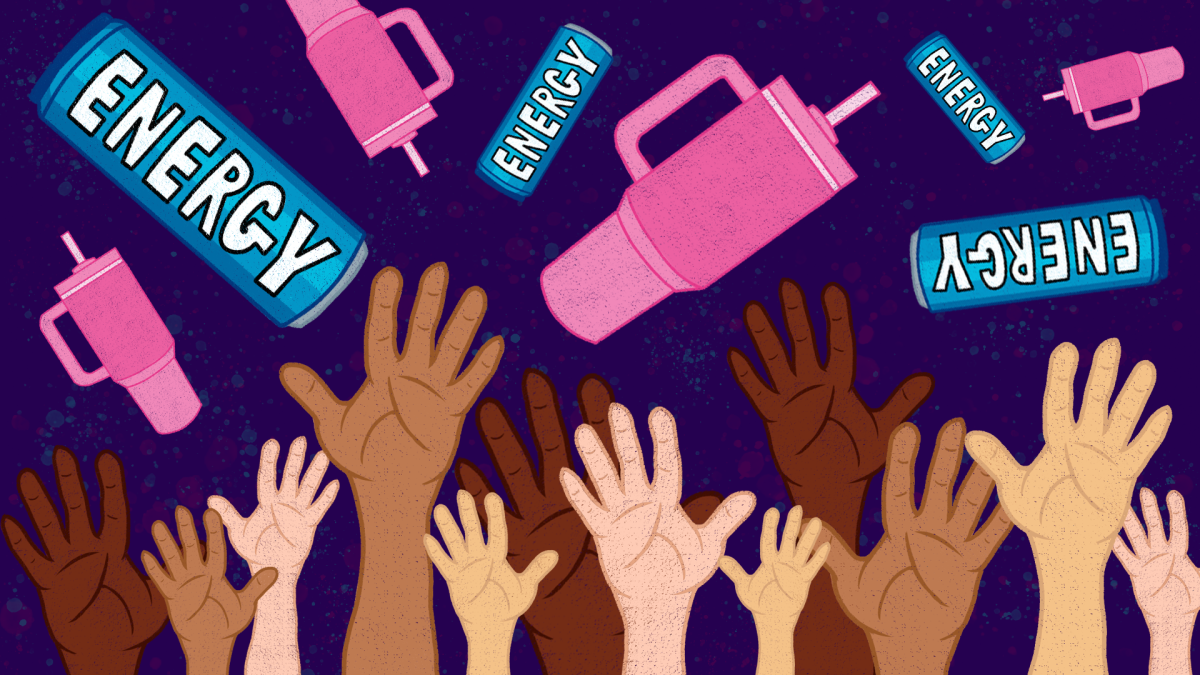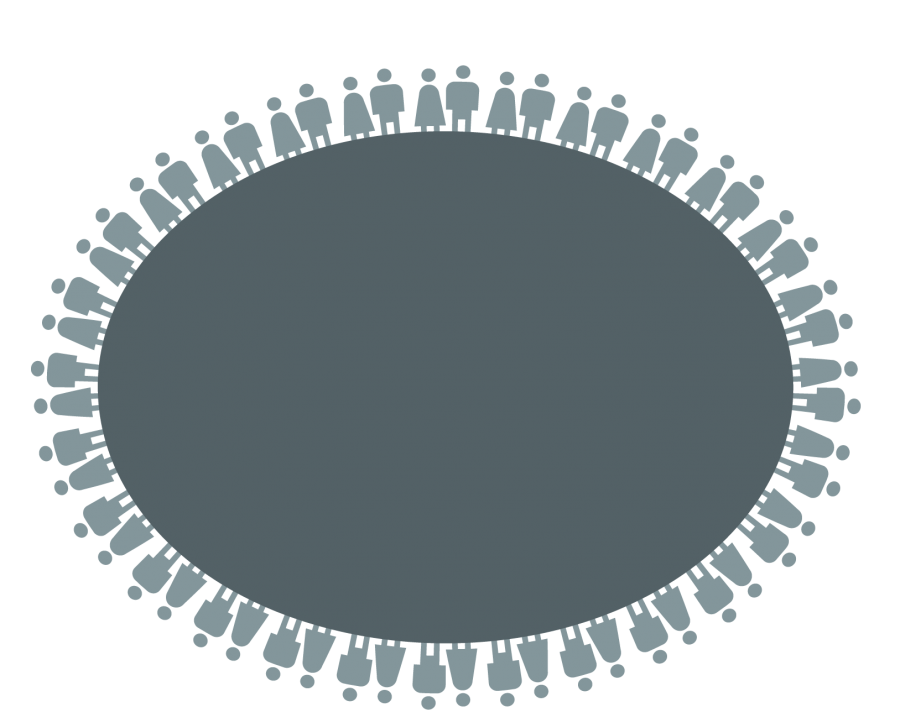Humans Need to Adjust Practices
Dalton Edwards
The world’s human population is estimated today to be 7.383 billion, and growing. By the time you read this article, nearly a hundred thousand American newborn infant heads will have hit cradle pillows since the now-time of this article’s conception (about a week). Many people, myself included, are concerned about the looming and present danger of overpopulation. The argument goes that carrying capacity of Earth simply cannot maintain 7.3 billion people. Resources will be depleated. Given the transnational aspiration toward the North American middle-class lifestyle, such extinction-level predictions are all but guaranteed. The future looks especially haunted considering the United Nations estimates that global population increases will peak at somewhere around nine billion somewhere around the year 2050. By then, if the human race hasn’t already been reduced to dust by climate change, nuclear war or unfriendly space invaders, it will surely be done in by its inability to quit reproducing. However, as with most problems that depend on complicated and fluctuating systems-based assumptions, the situation is more nuanced. Contrary to the opinion I’ve held for many years, that overpopulation is not the crisis many scientists and laypeople make it out to be.
Such an opinion merits a note of caution on behalf of myself in light of the reader who’ll get this far and think me a narcissist or a ding-bat or, even worse, an alt-truther. The damages done to Earth in the blind grasp for wealth and power are too much and too varied to ignore. Extinction-level crises happen on a day-to-day basis for species across the globe. Thanks largely due (if not exclusively) to human causes. Why then, you wonder furiously, is overpopulation not the gargantuan catastrophe most people paint it as?
Consider the alternative to population rise. Population decrease has been the mantra (and policy) of governments and organizations across the world for decades, if not centuries. China’s one-child policy was at one time the center of a global debate surrounding governments’ abilities to manage the procreative output of their citizenry. Many people rightly vilified the policy for its obvious and arcane human rights violations (forced sterilization, post-natal abortions, gender-incentives) so much so the UN declared the “opportunities to decide the number and spacing of children” a basic human right in 1966. While there are other methods to de-incentivize procreation, ones that don’t obviously violate individuals’ bodies, they are still often coercive, privacy-killing and unnecessarily bureaucratic.
Additionally, the argument to depopulate sidesteps a larger problem for humans that are already here: drastic global economic consequences. When birthrates move in retrograde (as they are now), older generations begin to outnumber younger generations. As Charles Eisenstein of The Guardian notes, “That means fewer workers supporting more retirees, falling income-tax revenues and reduced economic growth.” Because financial systems across the world require growth in order to simply operate, large-scale efforts to slow birth rates may adversely affect the global marketplace, in which economies will grow poorer and standards of living will decrease — starting first in places where poverty already is the cause of subsistence-style living.
An alternative, albeit difficult given the present administration’s backward stance on fossil fuels, science and the environment — is to rely on human ingenuity to circumvent specific environmental factors that make overpopulation less than desirable (and, considering the dying-out tenants of those ecosystems humans have wholly wrecked, quite evil). This is to say before long, certain resources will have been overexploited and humans will have to make due with alternatives. However, long before this happens on the scale current population use statistics posit, we must take the advice of Erle C. Ellis with The New York Times: “It is time for all of us to wake up to the limits we really face,” he writes. “The social and technological systems that sustain us need improvement.” We must invest in developing sustainability projects that will reduce human impact despite natural population increases. It is not more people that ruin the environment. It is our approach and use of that environment, our segmenting of land and unsustainable, almost blind pursuit of resources that will be our downfall. Capitalizing on modern technology should be the solution to the human struggle against Earth’s overstretched carrying capacity, not the nearly meaningless though widespread dread over birthrates.
It is how we use the land, not the number of people on the land, that matters. Humans must reign in environment-degrading practices soon. Awareness campaigns and sustainability funding are a must. But first, let’s not go around thinking population increases will be the cause of our extinction. That day will come, surely, by the hands of those too use to access to notice or care for the leveled forests and barren oceans and unbreathable air, all of which signal our certain doom more so than any crowded city ever will.
Population Control Should be First Priority
Emma Tanner
When we think about sustainability, we think about recycling, and turning off the faucet to conserve water when we’re brushing our teeth — as if those things will really make a difference. At the end of the day, refilling your water bottle instead of cracking open a new one or buying a hybrid car won’t make you an environmental superhero as long as there are as many people on earth as there are, growing at such a fast rate. Overpopulation is at the heart of our environmental problems, yet it hardly gets talked about. We opt for installing solar panels and investing in clean air policies but as long as everyone has multiple children, our environmental issues will never cease.
According to The United States Geological Survey Water Science School, 71 percent of the Earth’s surface is covered by water and 96.5 percent of that is ocean: undrinkable, unusable for agriculture and a difficult option for human consumption if our fresh water sources fail to sustain human growth. With what’s left over there is little fresh water to sustain massive amounts of humans dependent on water. Many argue that these numbers are irrelevant, as fresh water replenishes itself through rain and snowfall. Thanks to our incessant human efforts to pollute the atmosphere, harmful acid is now capable of falling from above, affecting everything from animals’ drinking water to natural forest habitats, to our agricultural practices. The issue is even relevant to those of us situated in the Rocky Mountain region. The Adirondack Council claims that power plants are releasing excessive amounts of nitrogen that cause acid rain formation and damage to forests and drinking water. Other natural resources are losing the battle against human growth as well. Everything from fossil fuels used for power, to land used to farm and develop cities and suburbs, are wasting away. Animals we depend on to balance our ecosystems are losing their homes and their sources of nourishment. The more our human population puts stress on the environment the more naturally functioning habitats and systems will rupture, overthrowing natural balances and leading to more and more technological developments designed to stretch mediocre Band-Aids over the harm we’ve caused.
Now, many might start claiming that we shouldn’t fret about ruining this world because plans are being made to migrate humanity to Mars. That’s right, Mars. Now, if you know anything about human beings, you know that we’ve done a fine job so far of sustaining our population growth through exploiting the environment with technological advancements. This might seem great to those itching to conquer their surroundings and live a life of human “luxury,” filled with high towers, fine Ikea furniture and no fear of being attacked by a lion on their way to the grocery store. The fact of the matter is that our biological makeups haven’t evolved as quickly as our technologies have, and human beings are now living lives we were never meant to. Believe it or not, we’re actually not designed to live happily in skyscrapers situated in the center of miles of concrete without so much as a ficus in the corner. Maybe we’ve beaten threats like lion attacks and deadly disease, but according to everythingconnects.org our overpopulation may be to blame for things like elevated crime rates, mass shootings, etc. Living in such unnatural conditions may be why so many people snap these days without a “good reason,” or even live with common mental diagnoses such as depression and anxiety. Pushing everyone to live underground on Mars because the atmosphere isn’t strong enough to protect life from the sun’s rays probably won’t do much to help the issues regarding human mental instability and overall unhappiness. Hey, at least we’ll reproduce.
At the end of the day, those campaigns urging people to recycle when they can or buy that cute new Prius won’t legitimately solve any of our problems. There are too many of us and our ever-growing population isn’t sustainable in a world of finite land and resources. We need to set our anthropocentric traditions aside long enough to collectively establish ethical ways to combat overpopulation, or else face the downfall of humanity: through the loss of human happiness or the loss of our species entirely. We’ve done enough damage. It’s time to recognize and prioritize human population control.

















